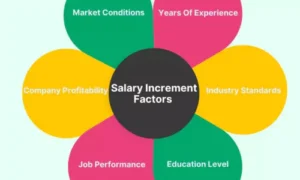🎓 Are you standing at the crossroads of your academic journey, wondering which path will lead you to a lucrative career? You’re not alone. With the rising cost of education and the ever-changing job market, choosing the right undergraduate course has never been more crucial.
But here’s the catch: the highest-paying degrees aren’t always the most enjoyable; moreover, following your passion doesn’t always guarantee financial success. So, how do you strike the perfect balance? 💼💰 This blog post will, therefore, guide you through the maze of undergraduate options, helping you make an informed decision that aligns with both your aspirations and financial goals.
From exploring the top-paying undergraduate degrees to uncovering the hidden factors that influence career earnings, we’ll dive deep into the world of high-paying careers. We’ll also discuss how to future-proof your choice in an increasingly automated world and reveal alternative paths that can lead to impressive paychecks. So, buckle up as we embark on this journey to discover which undergraduate course could be your golden ticket to a high-paying career!
1. Top-paying undergraduate degrees

STEM fields dominate high-paying careers
STEM degrees consistently lead to high-paying careers due to high demand and specialized skills. Here’s a comparison of median salaries:
| Degree | Median Salary |
|---|---|
| Computer Science | $88,000 |
| Engineering | $86,000 |
| Mathematics | $76,000 |
Business and finance programs
Business degrees offer versatile career paths with strong earning potential. Popular majors include:
- Finance
- Accounting
- Business Administration
- Economics
These programs equip graduates with analytical and leadership skills, essential for high-paying roles in various industries.
2. Factors influencing career earnings

A. Industry demand and job market trends
The demand for specific skills and professions can significantly impact earning potential. Here’s a comparison of high-demand industries:
| Industry | Growth Rate | Median Salary |
|---|---|---|
| Tech | 13% | $97,430 |
| Healthcare | 15% | $75,040 |
| Finance | 8% | $81,410 |
B. Geographic location and cost of living
Location plays a crucial role in determining your career earnings. Consider these factors:
- Regional job markets
- Cost of living differences
- Salary variations by city or state
3. Balancing passion with earning potential

Importance of personal interests and skills
Choosing a career based solely on earning potential can lead to burnout and dissatisfaction. Consider these factors when balancing passion and salary:
- Personal interests
- Natural aptitudes
- Work-life balance preferences
- Career growth opportunities
| Factor | Importance |
|---|---|
| Passion | High |
| Salary | High |
| Skills | Medium |
| Growth | Medium |
Long-term job satisfaction vs. short-term gains
While high salaries are enticing, on the other hand, long-term satisfaction often stems from pursuing meaningful work. Consequently, consider how your chosen field aligns with your values and goals. Additionally, seek opportunities that offer financial stability and personal fulfillment to ensure a rewarding career path.
4. Beyond the degree: Skills that boost earning potential

Technical proficiencies
- Programming languages (Python, Java, C++)
- Data analysis tools (SQL, R, Tableau)
- Cloud computing platforms (AWS, Azure, GCP)
Technical skills significantly boost earning potential across industries. Proficiency in programming languages, data analysis tools, and cloud computing platforms is highly sought after. These skills enable professionals to automate processes, extract insights from data, and leverage cutting-edge technologies.
Soft skills and leadership abilities
| Soft Skill | Impact on Career |
|---|---|
| Communication | Enhances teamwork and client relationships |
| Critical thinking | Improves problem-solving and decision-making |
| Adaptability | Enables quick learning and flexibility in roles |
Soft skills complement technical abilities, making professionals more valuable. Strong communication, critical thinking, and adaptability are crucial for career advancement. Leadership skills, such as strategic thinking and team management, further increase earning potential and open doors to higher-level positions.
5. Alternative paths to high-paying careers

Vocational and trade programs
Trade schools offer specialized training for in-demand careers like electricians and plumbers. These programs often have:
- Shorter duration (1-2 years)
- Lower tuition costs
- High job placement rates
| Trade | Median Salary |
|---|---|
| Electrician | $56,900 |
| Plumber | $56,330 |
| HVAC Technician | $50,590 |
Entrepreneurship and startups
Starting a business can lead to unlimited earning potential. Key aspects include:
- Identifying market needs
- Developing unique solutions
- Building a strong team
Successful entrepreneurs often combine passion with problem-solving skills, creating innovative products or services that disrupt industries and generate substantial profits.
6. Future-proofing your career choice

Emerging industries and technologies
- Artificial Intelligence
- Renewable Energy
- Cybersecurity
- Biotechnology
Adaptability and transferable skills
| Skill | Importance |
|---|---|
| Critical thinking | High |
| Digital literacy | Essential |
| Emotional intelligence | Crucial |
Future-proofing your career requires staying ahead of emerging technologies and developing adaptable skills. Focus on industries like AI, renewable energy, and cybersecurity, which are poised for growth. Cultivate transferable skills such as critical thinking and digital literacy to remain valuable in an ever-changing job market.
Conclusion
Choosing the right undergraduate courses for a high-paying career involves careful consideration of various factors. Firstly, while fields like engineering, computer science, and finance typically offer lucrative opportunities, it is important to note that it’s essential to balance earning potential with personal interests and aptitudes. Moreover, remember that success and high earnings are not solely determined by your degree; rather, they are also influenced by the skills you develop, your work ethic, and your ability to adapt to changing market demands.
In conclusion, the best course for a high-paying career is one that aligns with your strengths and passions while offering promising job prospects. Furthermore, whether you choose a traditional degree or explore alternative paths, it is crucial to focus on developing versatile skills, staying current with industry trends, and cultivating a growth mindset. As a result, by doing so, you’ll be well-equipped to navigate the evolving job market and build a rewarding, financially stable career.






